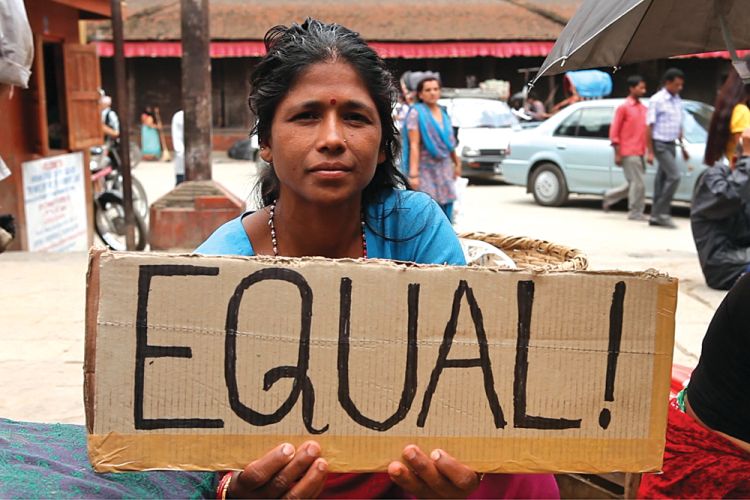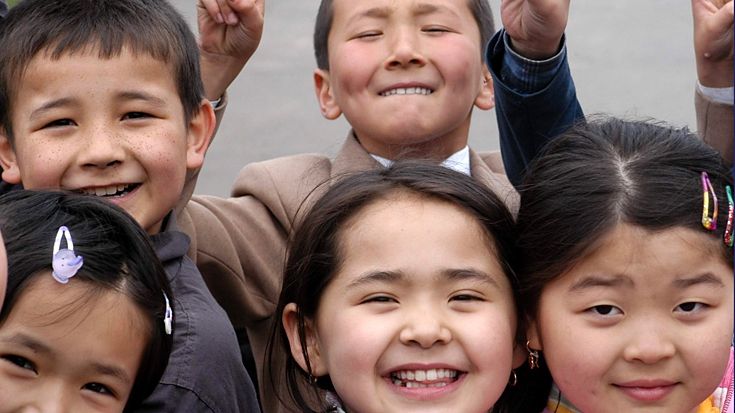Research project
Partnerships for Equity and Inclusion
- Start date: 1st June 2020
- End date: 28th February 2022
- Value: £149,209.71
- Partners and collaborators: This research Cluster aims to build on the work of five existing GCRF international research networks/projects focused on equity in key public institutions: The Socially Inclusive Cities Network - led by Dr Ghazala Mir at the University of Leeds.
The Political Economy of Education Research (PEER) Network – led by Professor Alan Smith at the University of Ulster
Surveys for Urban Equity – led by Dr Helen Elsey at the University of York
Raising Silent Voices - led by Dr Rachel Julian at Leeds Beckett University
Community Experience of Conflict in Haiti - led by Professor Siobhan Wills at the University of Ulster.
Funder:UKRI GCRF - Primary investigator: Dr Ghazala Mir, Associate Professor of Health Equity and Inclusion
- Co-investigators: Pilot projects to improve public service inclusion of disadvantaged populations are being led by:
Rosemary Kabaki at Nonviolent Peace Force in Myanmar
Professor Saidur Mashreky at the Centre for Injury Prevention and Research in Bangladesh
Dr Naureen Durrani at the University of Nazarbayev in Kazakhstan
Dr Sushil Baral at HERD International in Nepal
Ms Felicia Onibon from Change managers international
Mr Yassah Musa fromHaki Africal
Professor Bui Ha at Hanoi University of Public Health
Description
Contents
 Publications and outputs
Publications and outputs
About
There is growing acknowledgement that social inequalities are intensifying between and within countries globally, and that equity issues must be considered in relation to sustainable development in ODA-eligible contexts. Failure to address drivers of social exclusion that create or maintain inequalities, even during periods of rapid economic growth, has led to widening divisions between rich and poor and between diverse ethnic, religious and other social groups, linked to civil unrest, conflict and humanitarian crisis. The development of complex interventions that target the drivers of exclusion for disadvantaged populations in diverse contexts is, therefore, essential to social stability and cohesion at this time.
CLUSTER PROJECTS AND PARTNERS The Cluster covers 21 ODA-eligible countries in Africa (Ethiopia, Liberia, Kenya, Nigeria, Sierra Leone, Sudan, South Africa, Uganda, Zimbabwe), Asia (Bangladesh, India, Kazakhstan, Kyrgyzstan, Myanmar, Nepal, Philippines, Pakistan, Tajikistan, Uzbekistan, Vietnam) and North America (Haiti) with 25 Co-investigators/Partners.
STRATEGIC AIMS AND OBJECTIVES: Our overall aim is to produce multidisciplinary perspectives and new knowledge on how public services can act as a mechanism to increase the social inclusion of disadvantaged groups in ODA-eligible contexts. The following objectives support our aim:
- Amalgamate evidence-based strategies and interventions already identified by projects within the Cluster. These will be classified as macro-, meso-, micro- and multi-level interventions, drawing on the framework developed in the Socially Inclusive Cities Network for understanding how exclusion is created and maintained and assessed against the inclusion model developed by the PEER Network.
- Develop a summary of evidence-based strategies across the Cluster for wider dissemination and identify best practice methods for equity-focused research as well as gaps in current evidence and theory.
- Explore how these strategies align to current policy, practice and community priorities and to opportunities for implementation in a range of ODA-eligible contexts, drawing on the knowledge of international partners.
- Develop and support pilot projects that involve engaged practitioners/ policymakers and NGOs in collaborative work to implement and explore the feasibility of evidence-based interventions. Multilevel interventions that could work across diverse sectors and those addressing intersectional disadvantage will be of particular interest for future research to scale up the selected interventions.
- Assess outcomes from the pilot project work against known evidence gaps and select pilots with the most promise for filling these gaps and for upscaling to develop proposed interventions for future research
View and download our recent project outputs
 Project links
Project links
CIPRB – Partnerships for Equity and Inclusion
Impact
Cluster impact will be linked to the following planned outputs:
1. An evidence synthesis of recommended research areas and methods
2. A series of pilot studies in ODA-eligible countries supporting public service inclusion of disadvantaged populations.
3. Two international research workshops to share expertise and findings across the Cluster
4. Pilot reports describing methods and findings from each pilot study
5. A coproduced policy briefing on evidence-based strategies for inclusive public services developed from the findings of pilot projects
6. An open access academic publication for the overall study
7. An accessible report synthesising knowledge from the individual pilots and highlighting future research directions for upscaling or transfer of promising interventions.





